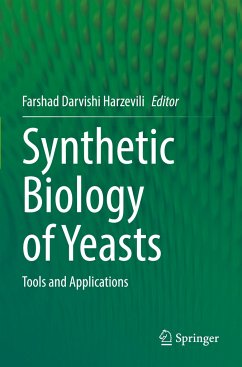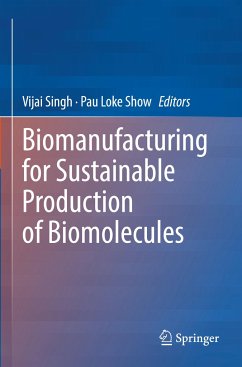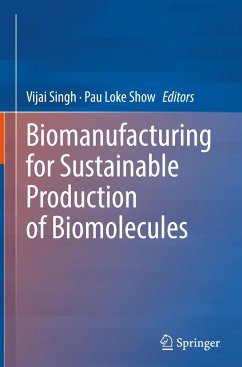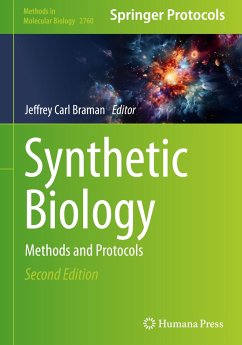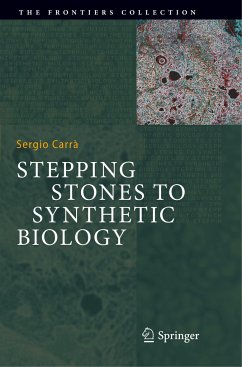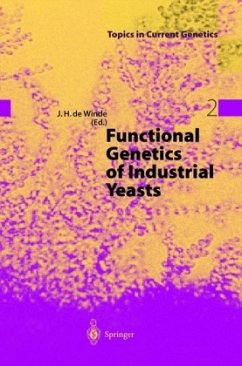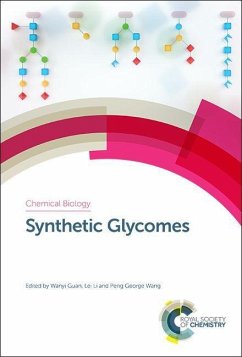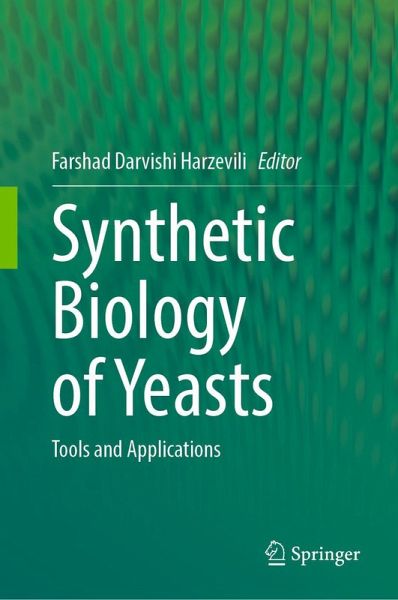
Synthetic Biology of Yeasts
Tools and Applications
Herausgegeben: Darvishi Harzevili, Farshad

PAYBACK Punkte
65 °P sammeln!
This book covers recent advances and future trends in yeast synthetic biology, providing readers with an overview of computational and engineering tools, and giving insight on important applications. Yeasts are one of the most attractive microbial cell factories for the production of a wide range of valuable products, including pharmaceuticals, nutraceuticals, cosmetics, agrochemicals and biofuels. Synthetic biology tools have been developed to improve the metabolic engineering of yeasts in a faster and more reliable manner. Today, these tools are used to make synthetic pathways and rewiring m...
This book covers recent advances and future trends in yeast synthetic biology, providing readers with an overview of computational and engineering tools, and giving insight on important applications. Yeasts are one of the most attractive microbial cell factories for the production of a wide range of valuable products, including pharmaceuticals, nutraceuticals, cosmetics, agrochemicals and biofuels. Synthetic biology tools have been developed to improve the metabolic engineering of yeasts in a faster and more reliable manner. Today, these tools are used to make synthetic pathways and rewiring metabolism even more efficient, producing products at high titer, rate, and yield.
Split into two parts, the book opens with an introduction to rational metabolic pathway prediction and design using computational tools and their applications for yeast systems and synthetic biology. Then, it focuses on the construction and assembly of standardized biobricks for synthetic pathway engineering in yeasts, yeast cell engineering and whole cell yeast-based biosensors. The second part covers applications of synthetic biology to produce diverse and attractive products by some well-known yeasts.
Given its interdisciplinary scope, the book offers a valuable asset for students, researchers and engineers working in biotechnology, applied microbiology, metabolic engineering and synthetic biology.
Split into two parts, the book opens with an introduction to rational metabolic pathway prediction and design using computational tools and their applications for yeast systems and synthetic biology. Then, it focuses on the construction and assembly of standardized biobricks for synthetic pathway engineering in yeasts, yeast cell engineering and whole cell yeast-based biosensors. The second part covers applications of synthetic biology to produce diverse and attractive products by some well-known yeasts.
Given its interdisciplinary scope, the book offers a valuable asset for students, researchers and engineers working in biotechnology, applied microbiology, metabolic engineering and synthetic biology.





